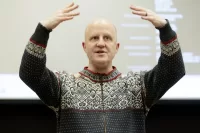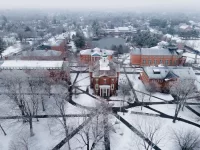
A selection of recent mentions of Bates people in the news, including coverage of new poetry from a faculty member along with commentaries on the homelessness crisis, the Trump administration’s spending bill, and rural students in higher education.
Myronn Hardy
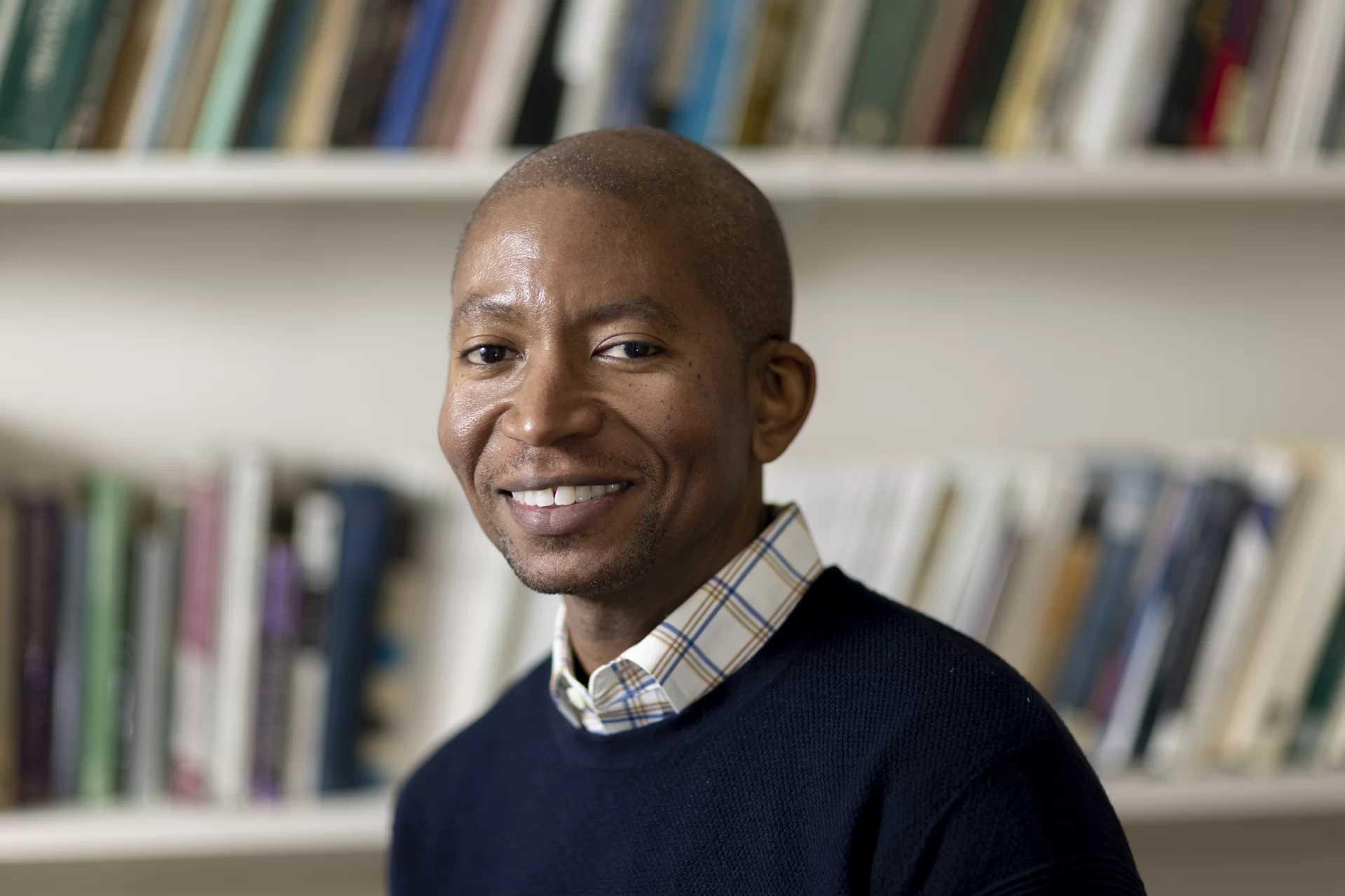
Deep water: ‘Threshold with Fog,’ by Myronn Hardy — Portland Press Herald
In July, new work from Associate Professor of English Myronn Hardy was featured as the poem of the week in the Portland Press Herald. Megan Grumbling, the curator of the Press Herald’s series, describes the poem titled “Threshold with Fog” as “hazy” and praises Hardy’s imagery. “I love this poem’s vivid, dream-like imagery, and how it cross-fades between scenes, leaving us feeling as lyrically displaced and uncertain as the speaker,” Grumbling writes.
Hardy told Bates News he finished writing “Threshold with Fog” about a year ago and that it has been a busy time for him, poetry-wise. “I’m currently writing poem after poem,” he says. As yet, he doesn’t have a new collection in mind. “I don’t know if a new collection is forming. This usually takes years to discover.” His inspiration for this poem, he says, was “thinking about being lost in the Leuthold Forest Preserve. And what it may mean to be found and guided by a stranger.” (Leuthold Forest Preserve is a spot in the wilds of Maine, southwest of Jackman.)
Hardy’s most recent collection, Aurora Americana (2023), was called “a clear-eyed vantage of America” by Rebecca Morgan Frank in her review for the Poetry Foundation.
Paul Schofield
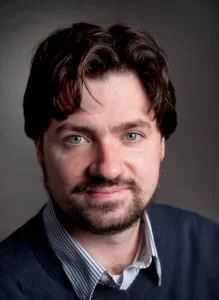
The homelessness crisis is a crisis of democracy — Jacobin
Associate Professor of Philosophy Paul Schofield published an essay this July in the Jacobin, his fourth for this quarterly magazine and website. For this piece, he interviewed homeless people in Olympia, Wash., offering a political and philosophical analysis of American homelessness and our current at-risk democracy.
“Homeless people find themselves in what we might call a state of internal exile — cast out of, and excluded from, the society in which they physically remain,” Schofield writes.
The people he interviews speak of horrific, rat-infested, living conditions, the lack of response from law enforcement to violence committed against homeless people, and the double-edged sword of government-provided transitional housing. “If they can tell us we’re not allowed outside, then where are we all supposed to go?” one man Schofield interviewed asked, framing the central question of the article.
Where can people go when the left and right alike are uncomfortable coexisting with them? How can our society fix a problem that we have attempted to resolve using both extreme sympathy and extreme shame? Schofield offers a solution: “What’s needed is a broad, sustained transformational effort designed to bring those pushed to the margins back into the fold and to prevent people from being pushed out in the first place. What’s needed is a politics that is focused not just on keeping people alive, but on enabling everyone to flourish as the social beings they are.”
Geoff Swift
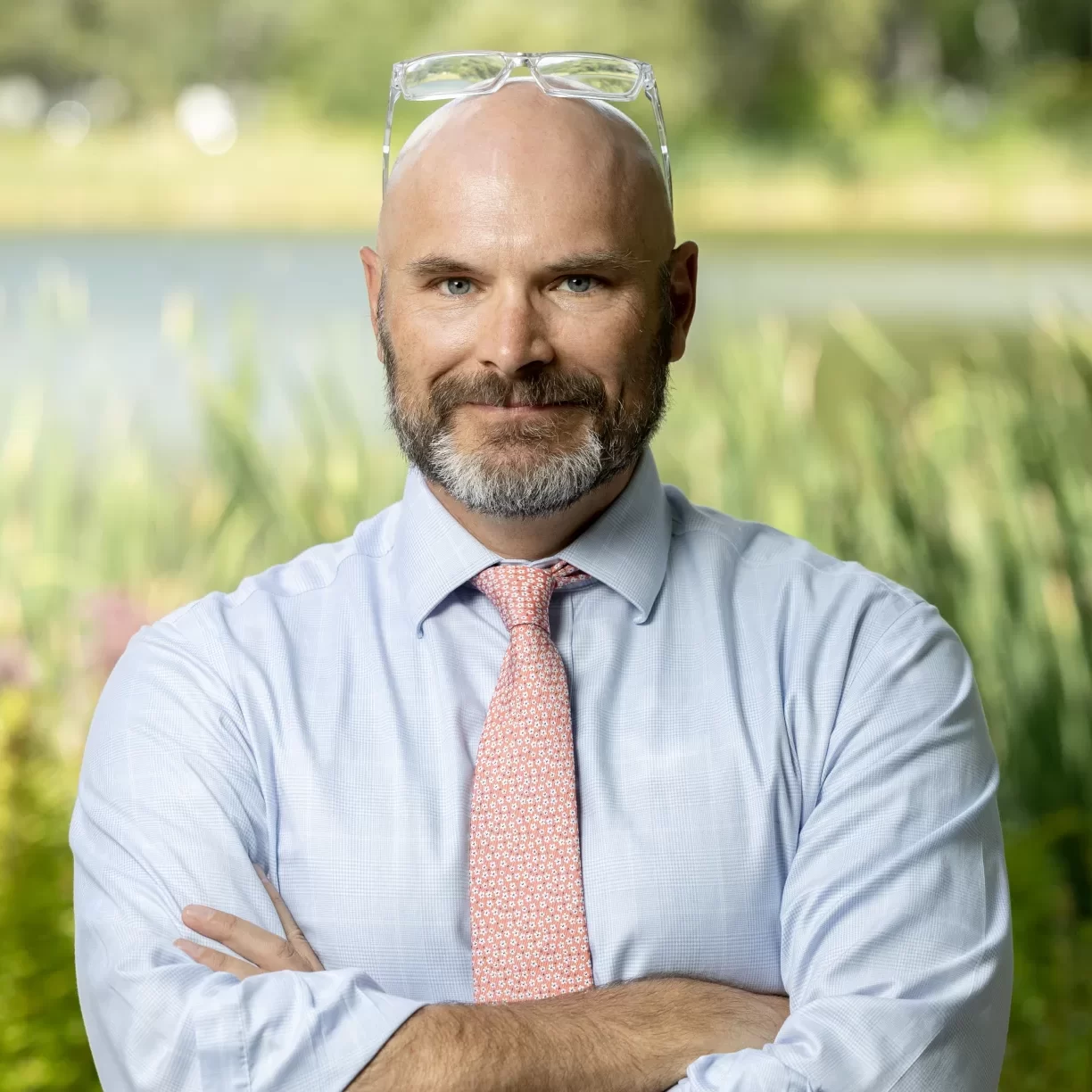
How Trump’s big bill will reshape the affordability of Maine higher education — Portland Press Herald
In July, Geoff Swift, the vice president for finance and administration and treasurer at Bates, commented on changes in taxation to college endowments under the Trump administration in a Portland Press Herald article. The “One Big Beautiful Bill Act” ultimately removed taxes on endowments for colleges with fewer than 3,000 students. But under various earlier Republican proposals on endowment taxes, Maine colleges including Bates, Bowdoin, and Colby, could have been impacted by the bill. The endowment tax was introduced under the first Trump administration, and it taxed the endowments of private schools with at least 500 students and endowments worth $500,000 per student or more at a rate of 1.4 percent on their annual investment income. That included Bowdoin and Colby colleges, but not Bates. Some politicians had advocated raising that tax into double digits, but ultimately the tax was capped at 8 percent on the wealthiest schools.
Bates will not be taxed under the bill, but Swift spoke out against endowment taxes in principle, saying they limit opportunities to extend access and aid to students with financial need. “Still, no matter how many students an institution enrolls, taxing endowments is not good policy,” Swift told the Press Herald. “While the taxed universities will feel the impact most acutely — it will stress their economics — indirect impacts will eventually reach other colleges, some of which might not have the resources to weather it.”
Mara Tieken
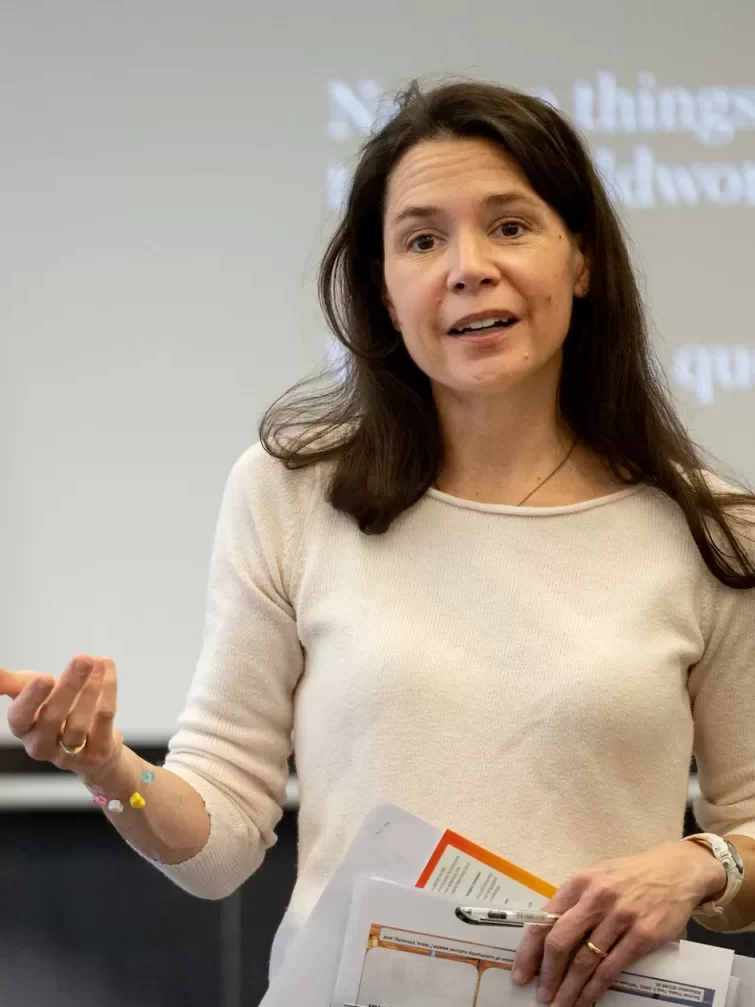
Rural students: Options and goals — Maine Calling
In late June, Professor of Education Mara Tieken was a panelist on an episode of Maine Calling, Maine Public’s weekday call-in show, focused on rural students. The episode examined the “options and goals” for rural students in higher education.
Tieken studies rural education and students; her book Educated Out: How Rural Students Navigate Elite Colleges—And What It Costs Them, published by the University of Chicago Press and released in May, is a study exploring the ways that geography impacts the experiences of first-generation students from rural communities — from access to higher education, experiences during college, and postgraduation opportunities.
In August, Tieken, who received the 2024 Kroepsch Award for Excellence in Teaching, was also featured in Ed. Magazine, the publication of Harvard Graduate School of Education, where she received both her master’s in education and her doctorate. When asked what she most hoped readers of Educated Out would come away with, Tieken gave this answer:
“I’d like readers to, first, come away with a more nuanced and complex understanding of rural America and a willingness to question many of the rural stereotypes. I also hope that they gain an awareness of how geography shapes college opportunity and, perhaps, some things we can do about that. For rural students reading this book, I hope that it validates some of their experiences. I want them to know that they’re not alone and that any challenges or barriers they face might reflect the larger geography of opportunity, which doesn’t favor folks from rural and remote places. I also want them to know that we — policymakers, practitioners, and researchers — have some real work to do to make colleges more accessible and inclusive, and we’ll need their leadership on this.”
